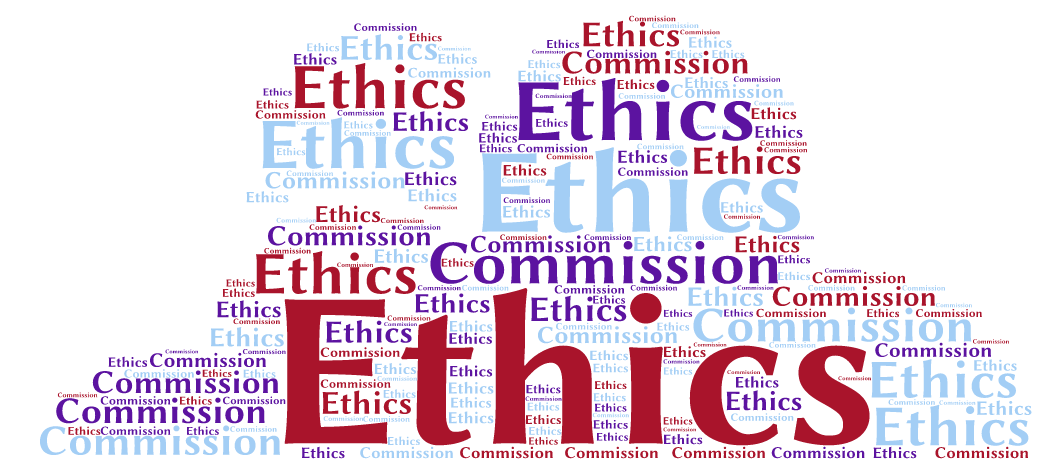With 12 days left in the 60-day session the New Mexico Legislature might or might not be heading toward a repeat of last year.
It’s difficult to tell.
Last year, in the final days of the 2016 session, the House of Representatives approved by a 50-10 vote, and with great fanfare, an independent ethics commission proposal. It would have asked voters to enshrine the commission in the state constitution.
It died in the state Senate.
On Monday, the House Judiciary Committee unanimously approved this year’s version of the same constitutional amendment after a long discussion, which included many small changes. And Democratic Speaker of the House Brian Egolf, who is a committee member and appearing mindful of the ticking clock, promised to call for a vote on the House floor “as soon as possible.”
Minutes earlier, when it appeared the committee might postpone a vote to a later day Egolf, a committee member, had scrunched up his a face at committee chairwoman, Democratic Rep. Gail Chasey of Albuquerque, signaling he wanted a vote that afternoon.
“I would like to get this over to the Senate,” he said.
The vote happened.
The proposal, sponsored by Republican Rep. Jim Dines of Albuquerque and three Democratic state lawmakers, would ask New Mexicans in 2018 to add a seven-member independent ethics commission to the state constitution. Armed with subpoena power, the independent commission would investigate and prosecute ethics complaints against public officials.
The commission is a long sought-after goal of good-government advocates following a series of high-profile scandals involving officials from both political parties. Despite two dozen or so bills since 2006, an ethics commission proposal has not made it to a governor’s desk or to the voters. (Over the years the proposals have been both bills, which must go to the governor for a signature and constitutional amendments, which would go directly to the ballot for an up or down vote by voters.)
On Monday advocates celebrated the House Judiciary Committee vote, calling the unanimous vote a “milestone,” and singling out the Speaker’s support.
“Because we’re on a sensitive timeframe Speaker Egolf showed tremendous support in his offer to expedite this to the floor and get it to the Senate,” said Heather Ferguson of Common Cause New Mexico.
Passage of the proposal by the House would send the constitutional amendment to the state Senate, whose Senate Rules Committee killed Dines’ proposal three days prior to the end of last year’s 30-day session.
Dines’ proposal likely will head to that committee again, said Sen. Majority Leader Peter Wirth of Santa Fe.
Wirth is a longtime supporter of ethics commission legislation. He sponsored a commission proposal in 2015. He also is the unknown factor as this year’s ethics commission legislation navigates an institution notoriously resistant to ethics legislation.
Wirth replaced Democrat Sen. Michael Sanchez of Belen as the Senate’s most powerful lawmaker following Sanchez’s defeat in the November election. Many viewed Sanchez as opposed to ethics commission legislation.
Wirth knows the Senate’s record: The House of Representatives has passed multiple proposals in a dozen years, but the Senate – never. And Senate Rules has been a singular challenge.
Asked if the Senate had enough time to pass the constitutional amendment this year, Wirth told a story about getting one of his bills in a previous session passed in three days.
But that wasn’t ethics commission legislation.
Is there political will this year in the Senate to pass ethics commission legislation?
“That’s a different question,” Wirth said. “This is something I want.”
If Dines’ proposal clears the Senate Rules Committee it likely will go to the Senate Judiciary Committee for a vetting, Wirth said.
Should the proposal clear both committees then the constitutional amendment would head to the Senate floor, where Wirth’s power as majority leader would come into play, he said.
Meanwhile, the clock keeps ticking.
Senators move to fix lobbyist reporting loophole
The constitutional amendment proposing an independent ethics commission wasn’t the only good government legislation acted on Monday.
The state Senate by a vote of 30-9 approved legislation that would fix a loophole the Legislature created in 2016 that allowed lobbyists to publicly report less information than before on what they had spent on government officials. Senate Bill 393, sponsored by Sen. Daniel Ivey-Soto, D-Albuquerque, passed the Senate Monday.
Meanwhile, bills that would require more public reporting on how individual state lawmakers spend money on projects around the state appear bottled up in committees.
The Legislature typically divvies up a portion of the available infrastructure bond money among individual lawmakers. But while state lawmakers report what they want funded publicly, what is actually funded is not publicly available unless a lawmaker approves the Legislative Council Service sharing it publicly.
HB121 sponsored by Democratic Rep. Matthew McQueen of Albuquerque passed the House a month ago — on February 6 – and moved to the Senate, where it was assigned to the Senate Rules Committee. That committee has not heard the bill, however.
Republican Sen. Sander Rue of Albuquerque has sponsored a similar bill. It passed the Senate Rules Committee on Jan. 30, but its next committee — the Senate Finance Committee — has not heard it.

Will history repeat itself or will NM evolve? Here’s what happened last year in the Senate Rules Committee.
https://www.youtube.com/watch?v=xYCQwPAP3KA